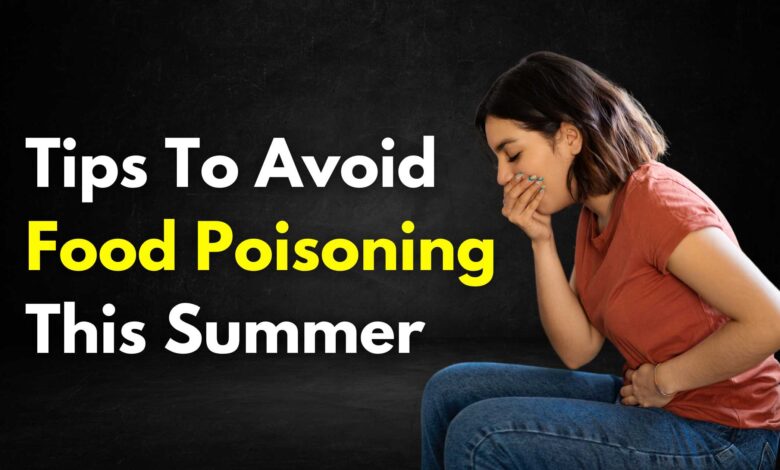Ensuring Food Safety: Tips To Avoid Food Poisoning This Summer

As temperatures rise in the summer and we gather more outdoors, the risk of foodborne illness increases due to factors such as improper food handling and storage. In order to protect your health and enjoy your vacation with peace of mind, it is important to pay attention to food safety. Here are some important tips to prevent food poisoning this summer.
1) Cleanliness is important:
Start with clean hands and surfaces. To avoid cross-contamination, wash your hands thoroughly with soap and water before handling food, and wash cutting boards, utensils, countertops, etc. with hot soapy water after each use.
2) Wash the product thoroughly.
Wash fruits and vegetables under running water, even if they have skins that you don’t eat. This helps remove dirt, bacteria, and pesticide residues that may be present on the surface.
3) Keep cold food cold:
If you’re transporting perishable foods like salads, fruit, or dairy products, use an insulated cooler or ice packs to keep them cool. Store these foods in the refrigerator or cooler until just before eating, and avoid leaving them at room temperature for too long, especially in hot weather.
4) Cook thoroughly.
Proper cooking is important to kill harmful bacteria and prevent food poisoning. Use a food thermometer to ensure meat, poultry, seafood, and other protein-rich foods reach the correct internal temperature.
Ground beef: 160°F (71°C)
Chicken: 165°F (74°C)
Fish: 145°F (63°C)
Leftovers: 165°F (74°C)
5) Practice safe grilling:
Grilling is a popular summer activity, but it’s important to do it safely. Preheat your grill before grilling and clean it thoroughly to remove any residue from previous use. To avoid cross-contamination, use separate utensils and dishes for raw and cooked foods, and don’t partially sear meat to finish cooking later.
6) Store leftovers properly.
Refrigerate leftover food immediately, ideally within 2 hours of cooking, to prevent the growth of harmful bacteria. Divide most of it into small containers to cool quickly, and use the rest within 3-4 days, or freeze for longer storage.
7) Be wary of buffet style meals.
If you’re eating buffet-style at your event, be aware of potentially dangerous foods that can be stored at room temperature for long periods of time, such as salads, dips, and cold cuts. Choose foods that are properly refrigerated or heated and avoid dishes that appear undercooked or improperly handled.
8) Avoid cross-contamination:
Store raw meat, poultry, and seafood away from ready-to-eat foods to avoid cross-contamination. Use separate cutting boards, utensils, and containers for raw and cooked foods, and never use plates or utensils that have come in contact with raw juices.
9) Stay hydrated:
Drink plenty of water, especially outdoors in hot weather. Proper hydration aids digestion and helps flush toxins from your body when you eat contaminated food.
10) Trust your intuition:
If food looks, smells, or tastes different, trust your instincts and avoid eating it. When in doubt, it is better to err on the side of caution and throw away potentially unsafe food than risk food poisoning.
Conclusion
Maintaining food safety habits is essential to prevent food poisoning and enjoy a healthy and enjoyable summer. By following these tips for proper food handling, storage, and preparation, you can minimize the risk of foodborne illness and make your summer gatherings safe and enjoyable for everyone involved. Stay vigilant, stay informed, and prioritize food safety so you can make the most of your summer celebrations without worrying about foodborne illness.




